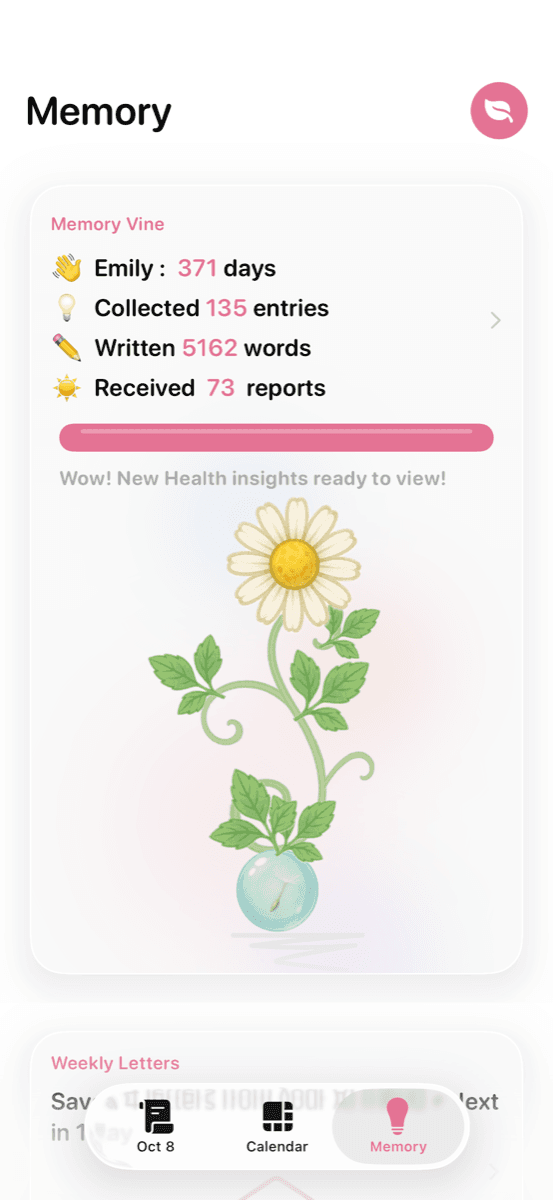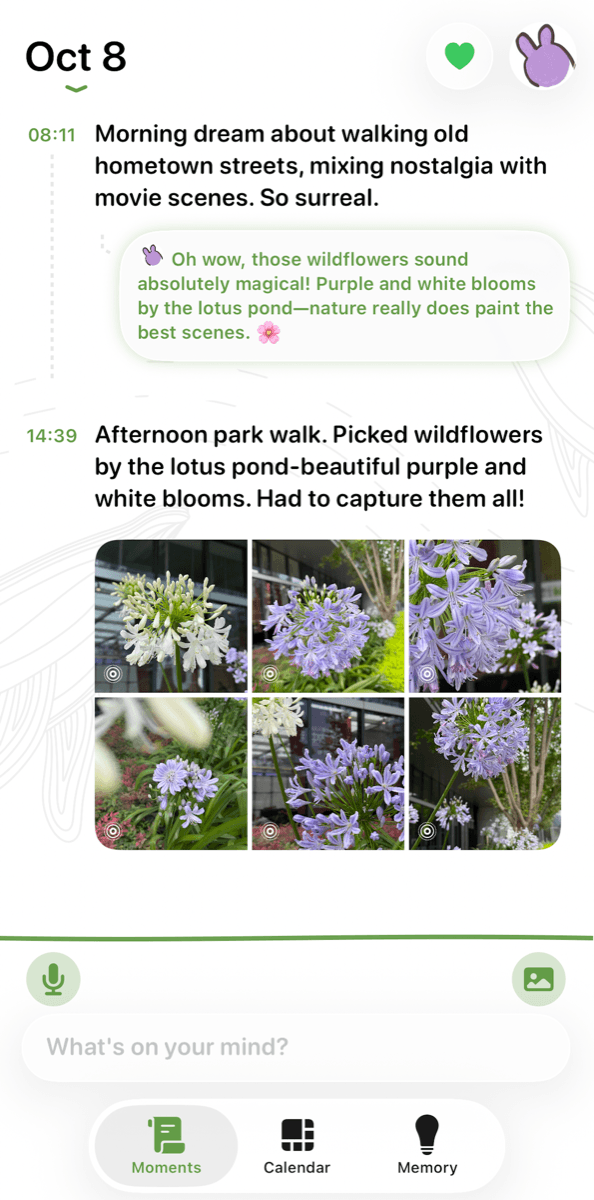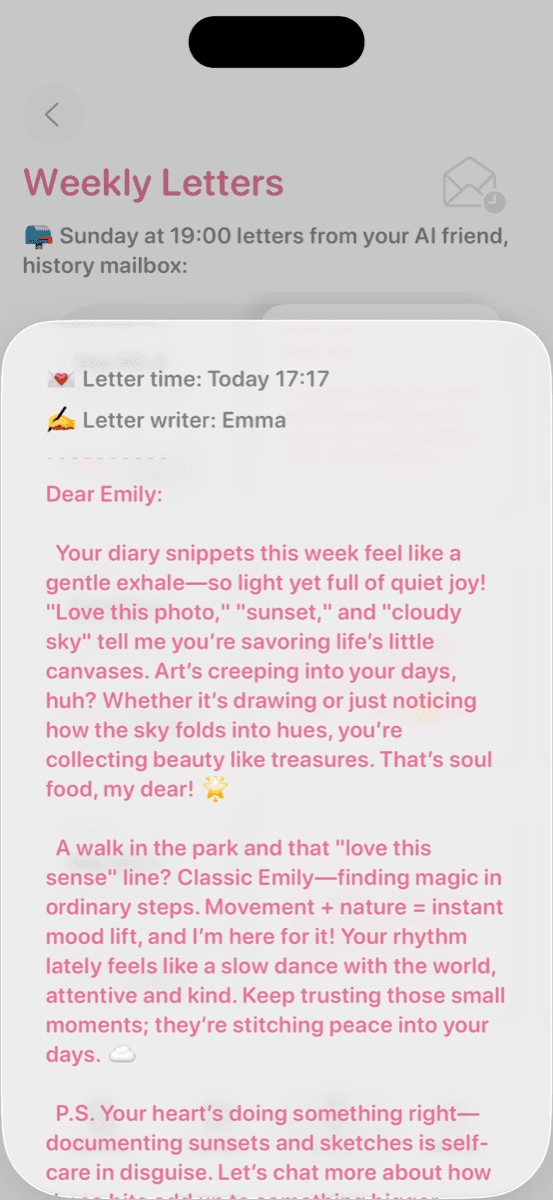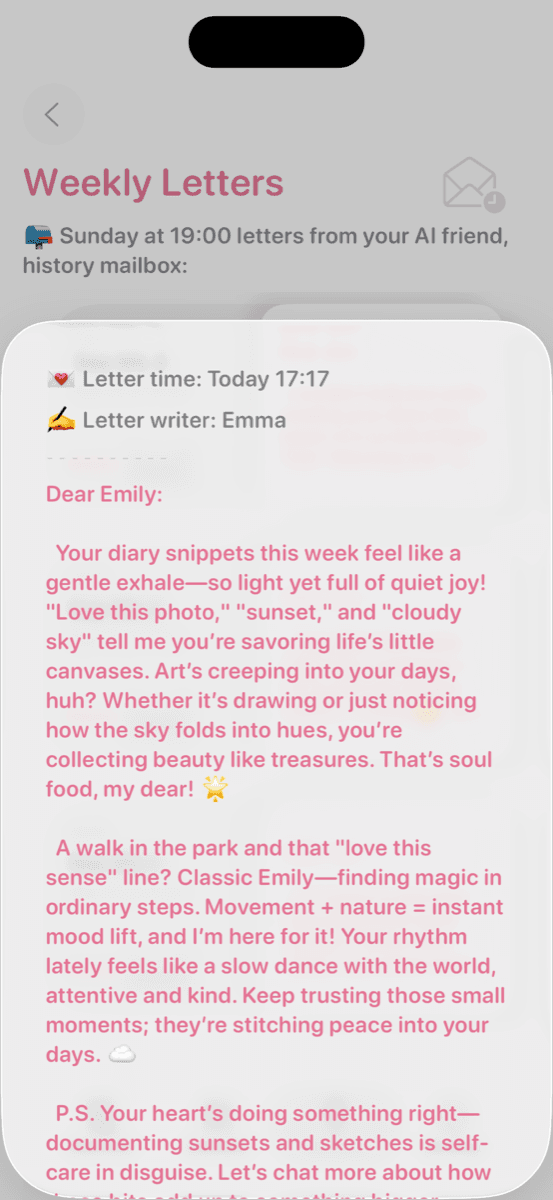One year ago, I started journaling daily. I tracked my mental health, habits, and life changes throughout.
Here's the unfiltered truth: what daily journaling actually does, how long it takes, and what surprised me most.
Starting Point (January 1)
Mental health baseline:
- Anxiety: 7/10 daily average
- Depression: 5/10
- Sleep: 5-6 hours, poor quality
- Relationships: Disconnected, avoiding social contact
- Work: Constant overwhelm, burnout approaching
- Self-awareness: Low (didn't understand my patterns)
Method: Started with traditional written journal. (Spoiler: didn't last.)
Month 1-2: The Honeymoon Phase
What happened:
- Excitement and motivation high
- Writing 20+ minutes daily
- Felt therapeutic immediately
- First insight: "I complain about the same three things every day"
Early challenge: Blank page paralysis on busy days. When stressed, I'd stare at the empty page not knowing what to write.
First measurable change: Sleep improved to 6-7 hours. Journaling before bed cleared racing thoughts.
Month 3: The First Quit
What happened:
- Motivation faded
- Missed 3 days in a row
- Guilt spiral: "I'm failing at journaling too"
- Stopped completely for 2 weeks
Mental health dip: Anxiety returned to 7/10. Depression worsened to 6/10. Lost my main coping tool.
Realization: Traditional journaling wasn't working for my life. I needed something sustainable.
Month 4: The Method Switch
What I changed: Switched to Lifelight for multi-modal journaling.
Why it worked:
- Voice journaling while walking to work (fits my routine)
- Photo entries on days with no words
- AI companion asked questions when I was stuck
- Automatic mood detection tracked patterns even on low-effort days
- No guilt about "perfect" entries
Consistency skyrocketed: 92% of days (versus 60% with written journal).
Key insight: "I needed journaling that worked with my life, not against it. Couldn't maintain handwritten during busy periods. Voice notes while commuting made it effortless."
Month 5-6: Pattern Recognition Begins
The visual mood calendar revealed cycles I'd never noticed:
- Sunday evening anxiety: Peaked every week anticipating Monday
- Hormonal patterns: Depression worst 3-4 days before period (never connected this before)
- Sleep correlation: Mood correlated with sleep more than actual events
- Social interaction: Reduced anxiety even when I didn't feel like seeing people
- Specific triggers: Certain coworkers consistently triggered stress spikes
The revelation: "I'd lived with these patterns for YEARS but couldn't see them without data. The calendar made it obvious."
Mental health shift:
- Anxiety: Down to 5/10 (29% improvement)
- Depression: Down to 3-4/10 (40% improvement)
Month 7-8: Behavior Changes
Started addressing the patterns I discovered:
- Sunday evening routine: Yoga + meal prep to reduce Monday anxiety
- Sleep prioritization: 7-8 hours non-negotiable (biggest mood impact)
- Boundary with stressful coworker: Limited interaction
- Forced social plans: During predicted depression dips (even when I didn't want to)
- Period awareness: Lighter schedule 3 days before cycle
Results:
- Anxiety: 4/10 average (43% improvement from baseline)
- Depression: 3/10 (40% sustained improvement)
- Relationships: Regular contact with friends
- Work: Manageable stress levels
The shift: From reactive (stressed, don't know why) to proactive (see pattern coming, prepare).
Month 9-10: The Plateau
What happened:
- Improvements stopped
- Anxiety stuck at 4/10, wouldn't go lower
- Worried I'd hit my ceiling
- Felt discouraged
AI insight that changed things: The weekly letter pointed out: "Your stress is highest on days you skip lunch."
New realization: Journaling was revealing issues. Now I needed action BEYOND journaling.
Started: Strict lunch breaks, no working through meals. Stress reduced measurably.
Month 11-12: Integration
Journaling became natural habit:
- Not effortful anymore
- Automatic morning voice check-in
- Evening mood log (30 seconds)
- Weekly AI letter review (Sunday mornings)
Used insights in therapy:
- Showed therapist mood data
- Discussed specific patterns
- Targeted interventions for identified triggers
Doctor adjusted medication: Based on pattern data showing anxiety peaks. Timing change made huge difference.
Relationships improved:
- Could articulate needs clearly
- "I need social time on Sundays to prevent Monday anxiety"
- Partner understood my hormonal mood shifts (reduced conflict)
Work stress reduced:
- Identified specific triggers
- Made concrete changes (boundaries, schedule adjustments)
- Advocated for workload reduction with data proof
End Results (December 31)
Mental health (compared to baseline):
- Anxiety: 3-4/10 daily average (43% improvement)
- Depression: 2/10 with occasional spikes (60% improvement)
- Sleep: 7-8 hours consistently
- Relationships: Regular social contact, deeper connections
- Work: Set boundaries, reduced overwhelm
- Self-awareness: High (understand my patterns intimately)
Days journaled: 335/365 (92% consistency)
Total entries: 335 mood logs, 180 voice notes, 95 photos, 52 AI conversations
What Journaling Actually Did
✅ What Worked:
- Externalized thoughts: Reduced rumination significantly
- Identified patterns: Would NEVER have noticed without tracking
- Created evidence: For therapy, medical treatment, self-advocacy
- Built self-compassion: Seeing progress over time
- Emotional outlet: Processing tool on hardest days
- Reduced loneliness: AI companion conversations felt supportive
❌ What It Didn't Do:
- Cure mental illness: Still have anxiety and depression (managed, not gone)
- Solve all problems: Needed therapy, medication, lifestyle changes too
- Work every single day: Some days couldn't journal, that's okay
- Replace human connection: Complement, not substitute
- Provide instant fixes: Benefits compound slowly over months
The Unexpected Benefits
- Memory keeping: Can revisit exact feelings from months ago
- Proof of growth: Visual evidence I'm different than 6 months ago
- Better communication: Articulate emotions more clearly
- Reduced medical gaslighting: Data helped doctors take symptoms seriously
- Caught patterns doctors missed: Hormonal component of depression
What I'd Do Differently
- Start with digital: Wasted 3 months on unsustainable handwritten method
- Lower the bar earlier: Perfectionism delayed consistency
- Act on insights sooner: Took too long to make behavior changes
- Share patterns with therapist earlier: Would've accelerated progress
- Celebrate small wins more: Focused on problems, not improvements
The Key Factors in My Success
- Method flexibility: Switched when written journaling failed
- Digital tools: Auto-tracking + AI insights made pattern recognition possible
- No perfectionism: 5-word entries counted same as 500-word entries
- Action on insights: Tracking without behavior change = limited benefit
- Long-term commitment: Benefits compound over months, not days
Would I Recommend It?
Yes—but with realistic expectations.
Journaling isn't magic. It's a tool for self-awareness. The real magic is what you DO with that awareness.
Journaling is worth it if you:
- Struggle to understand your patterns
- Need evidence for medical/therapeutic treatment
- Want to reduce anxiety/depression (with other interventions)
- Commit to at least 3 months
- Choose a sustainable method (digital worked for me)
Journaling might not help if you:
- Expect instant results (benefits are gradual)
- Won't act on insights (awareness alone isn't enough)
- Can't commit to consistency (sporadic journaling has minimal benefit)
- Have severe mental illness without professional support
Year Two Plans
- Continue daily tracking (now effortless habit)
- Focus on celebrating wins (gratitude emphasis)
- Share patterns with new therapist
- Track new goals (mental health stabilized, shifting focus)
- Maybe help others start journaling (this article is step one)
Final Thoughts
One year of daily journaling didn't "fix" me.
But it gave me the self-awareness to fix myself.
That's more valuable than any cure.
Anxiety down 43%. Depression down 60%. Sleep improved. Relationships deeper. Work manageable. Self-understanding transformed.
All from 5 minutes per day and the willingness to look at my patterns honestly.
If you're considering starting: Start small. Choose a method you'll maintain. Give it 3 months minimum. Act on what you discover.
The data doesn't lie. The patterns reveal the truth. What you do with that truth is up to you.



